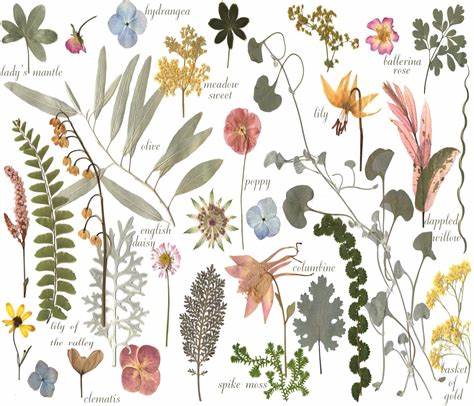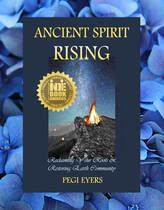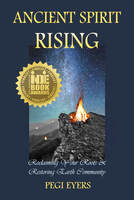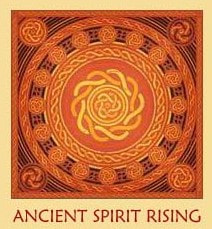by poplar rose
Reprinted from Hawthorn Heart ~ October 26, 2017
"The classic gaslighter is a sociopath, calculated and relentless in breaking down their victim's self-confidence, self-esteem, self-trust, and even sense of sanity. This sort of gaslighting is extreme and, one hopes, relatively rare, but I see a much more common, subtle and insidious form of gaslighting all the time in my work and life. I call it 'shadow gaslighting.' It's generally understood that we each have an unconscious aspect of self that influences us and drives our behavior. Beneath conscious awareness, this unconscious self is sometimes called our shadow. Our shadow consists of the parts of our self that we have disowned or denied because they are frightening, disappointing, socially unacceptable, or because they threaten our positive self-image." Justice Schanfarber "Gaslighting, Shadow and Abuse: How Protecting Our Unconscious Can Sabotage Our Relationships"
Please keep in mind before you read this........
The incredibly complex dynamics explored in this piece often feel impossible, or terrifying to name. My hope is that a phrase like "power under abuse" (which is similar to, but also distinct from, the concept of lateral violence) will allow us to more easily identify and communicate the abuse we are experiencing and witnessing, and at the same time, I feel cautious offering this kind of shorthand phrase as a tool to talk about abuse. So much of my work is about embracing complexity, and buzz words are so often reductive.
So please know - I am trusting you here, dear audience.
I am trusting you to hear the carefulness in my words, and I am asking you to hold that carefulness too.
Here we go:
When thinking about abuse, most people imagine someone holding power over someone else. We envision a masculine person standing over a smaller, quieter feminine person, and often they are yelling or being physically violent. Undoubtedly, this stereotypical kind of abuse is prolific, and yet power over abuse is decidedly not the only kind of abuse that exists.
Within Hawthorn Heart, my online class for boundary skills and protection magic for femmes, witches and healers, I define abuse as "irreparable harm caused in relationship."
By "irreparable harm" I don't mean that healing from abuse is impossible. Healing from abuse is a kind of death and rebirth. Abuse involves harm that haunts; abuse limits our sense of freedom and safety; and it shapes the terrain of our capacity to love, trust and connect.
"Power under abuse" occurs when someone who has less power, behaves abusively towards someone who has more power.
Sometimes this difference in power is real and concrete (for example a feminine person being abusive towards a masculine person). Sometimes this difference in power is tenuous, or falsely constructed (for example, someone lying about or downplaying how much financial privilege they have, in order to manipulate someone into giving them money). Sometimes it feels almost impossible to track the difference in power between the two parties, because they both hold so many different identities, privileges, and complex experiences of oppression (this is where "power under abuse" can be similar to lateral violence).
"Power under abuse" dynamics happen when the person who is behaving abusively perpetually identifies as a victim, and as a result of identifying this way, becomes unwilling/unable to take accountability for the harm caused by their actions. At the same time, the person with more power (real, perceived or falsely constructed) often tends to feel incapable of setting boundaries, or asking for accountability because they feel a strong sense of shame or guilt because of their (real/falsely constructed) sense of privilege/power.
In coming to understand "power under abuse," it's important to note that trauma perpetuates and enables black and white thinking, and trauma reduces the brain's ability to understand and hold nuance. When we are traumatized (which we all are to some degree) it becomes harder to track these kind of nuanced power dynamics. Many of us, when confronted with abuse, find well-worn comfort in labelling one person as the victim, and one person as the oppressor or abuser. Often we apply these labels based on the identities held by the people who are in conflict. The person with more power is quickly labelled as abusive, and the person with less power is quickly perceived to be a victim. Evidence that runs contrary to this binary label system can lead to extreme anxiety, confusion, and denial that clings to simplicity.
And yet, understanding power in such a one-dimensional way disempowers us all.
Before I move on to the list of what "power under abuse" can look like, I want to note that in this piece I am stepping out of my typical voice as an author. I don't tend to write things like abuse checklists. More often, I write personal narratives, a genre that lends itself more easily to nuance and complexity than checklists do.
I wrote this piece, which employs a checklist, definition and shorthand phrase, because I believe it is desperately needed.
It's possible this list will make you feel defensive, and that's OK. This work is confusing and difficult, but it's also necessary and brave. Take a deep breath, and take care of yourself as you read this. If you notice yourself becoming triggered and activated, set the boundaries you need to feel safe, including disregarding what I have to say, if that's what feels true or needed for you. And please know, my words are imbued with an intention toward healing, not with an intention of enabling abusers.
It's important to name that the abuse tactics I'm about to list stem from survival mechanisms that are related to trauma and oppression. Many of these actions have a way they can be executed, where they are healthy and even necessary. What I am listing here are examples of actions that lead to more harm and more abuse, rather than clearer boundaries, repair or conflict resolution.
Here we are called to notice causality, responsibility, intent and impact.
I also need to acknowledge that I could not have written this piece alone. This piece is a result of deep personal learning that comes from within my intimate relationships. This piece represents what I've learned from my work witnessing and supporting community to survive and heal through violence. And this work came through support from my counsellor, my partner, my friends, and colleagues (brilliant and generous folks like Tada Hozumi, Rain Crowe and Molly Meehan).
I don't claim that this piece is definitive, or applicable to everyone's experience.
I am simply attempting to mirror back what I have witnessed in myself and others. I am offering you what I have learned, in the hope that it will help you better understand your own experience, and encourage you to pursue justice and repair.
And with all that in mind....
This is what "power under abuse" can look like:
- Using shame and social justice language to justify entitlement to someone else's time, skills, resources or capacity.
- Telling someone that their basic needs or boundaries (which are distinct from their comfort) are not valid because they hold an identity that is more privileged than yours
- Pressuring or forcing someone to have sex with you, and then making claims about their politics when they say no, or name that you were sexually violent towards them
- Accusing someone of controlling or abusing you because they are requesting accountability, or transparent conflict resolution with you, for harm you caused or participated in.
- Accusing someone (often publicly) of harming you in ways that did not happen.
- Refusing to absorb or validate reality checks offered by friends and loved ones who witness abuse in your dynamic, and justifying this deflection by stating that abuse "can only exist when power or privilege is held over someone else."
- Refusing to accept support from anyone other than the person you are being abusive towards, and leveraging shame or guilt at their power and privilege to pressure them not to set boundaries with you.
- Denying, erasing or minimizing the support you receive from the person you are being abusive toward, both in private and in front of other people.
- Acting confused or dismissive when the person whose care you have erased or minimized, expresses feeling frustrated or hurt by you (often this is done in front of other people and the person experiencing the abuse is framed as over-reacting or just having an unrelated hard time).
- Accusing someone of abandoning you when they set boundaries or reach limits of capacity to care for you.
- Refusing to set your own boundaries (when it was possible for you to do so) and then making statements like "you made me do this."
- Calling for ostracization or punishment that is not proportionate to the harm done (i.e. "going nuclear" when the situation does not call for this, or simple conflict resolution would have sufficed).
- Constantly accusing other people of being oppressive, while simultaneously being unwilling to unpack your own privilege or examine how you harm or hold power over others.
- Not acknowledging the oppression experienced by the person you are abusing, and/or convincing the person you are abusing that they have more power (in general and specifically over you) than they actually do.
- Refusing to acknowledge care, labour and resources given to you by the person you are in conflict with, and instead characterizing them as only ever having harmed you.
- Refusing to address conflict in a way that honours the integrity and humanity of everyone involved.
- Stealing from the person you are being abusive toward, and either denying you stole, or claiming you have a right to the thing you stole because you are more oppressed than the person you stole from (which may or may not actually be true).
- Accusing someone of triangulating or breaking confidentiality when they seek witnesses or support, to navigate the abusive dynamic they are in with you.
- Claiming to be "getting support" and "calling in witnesses" when you are spreading rumours and triangulating.
- Weaponizing and applying pop psychology terms like "toxic," "narcissist" and "empath" to create a hyper-simplistic narrative of what happened between you and the person you were abusive towards, where you lack an understanding of what these terms were intended to describe.
- Labelling confusion, miscommunication or difference of opinion as gaslighting.
The incredibly complex dynamics explored in this piece often feel impossible, or terrifying to name. My hope is that a phrase like "power under abuse" (which is similar to, but also distinct from, the concept of lateral violence) will allow us to more easily identify and communicate the abuse we are experiencing and witnessing, and at the same time, I feel cautious offering this kind of shorthand phrase as a tool to talk about abuse. So much of my work is about embracing complexity, and buzz words are so often reductive.
So please know - I am trusting you here, dear audience.
I am trusting you to hear the carefulness in my words, and I am asking you to hold that carefulness too.
Here we go:
When thinking about abuse, most people imagine someone holding power over someone else. We envision a masculine person standing over a smaller, quieter feminine person, and often they are yelling or being physically violent. Undoubtedly, this stereotypical kind of abuse is prolific, and yet power over abuse is decidedly not the only kind of abuse that exists.
Within Hawthorn Heart, my online class for boundary skills and protection magic for femmes, witches and healers, I define abuse as "irreparable harm caused in relationship."
By "irreparable harm" I don't mean that healing from abuse is impossible. Healing from abuse is a kind of death and rebirth. Abuse involves harm that haunts; abuse limits our sense of freedom and safety; and it shapes the terrain of our capacity to love, trust and connect.
"Power under abuse" occurs when someone who has less power, behaves abusively towards someone who has more power.
Sometimes this difference in power is real and concrete (for example a feminine person being abusive towards a masculine person). Sometimes this difference in power is tenuous, or falsely constructed (for example, someone lying about or downplaying how much financial privilege they have, in order to manipulate someone into giving them money). Sometimes it feels almost impossible to track the difference in power between the two parties, because they both hold so many different identities, privileges, and complex experiences of oppression (this is where "power under abuse" can be similar to lateral violence).
"Power under abuse" dynamics happen when the person who is behaving abusively perpetually identifies as a victim, and as a result of identifying this way, becomes unwilling/unable to take accountability for the harm caused by their actions. At the same time, the person with more power (real, perceived or falsely constructed) often tends to feel incapable of setting boundaries, or asking for accountability because they feel a strong sense of shame or guilt because of their (real/falsely constructed) sense of privilege/power.
In coming to understand "power under abuse," it's important to note that trauma perpetuates and enables black and white thinking, and trauma reduces the brain's ability to understand and hold nuance. When we are traumatized (which we all are to some degree) it becomes harder to track these kind of nuanced power dynamics. Many of us, when confronted with abuse, find well-worn comfort in labelling one person as the victim, and one person as the oppressor or abuser. Often we apply these labels based on the identities held by the people who are in conflict. The person with more power is quickly labelled as abusive, and the person with less power is quickly perceived to be a victim. Evidence that runs contrary to this binary label system can lead to extreme anxiety, confusion, and denial that clings to simplicity.
And yet, understanding power in such a one-dimensional way disempowers us all.
Before I move on to the list of what "power under abuse" can look like, I want to note that in this piece I am stepping out of my typical voice as an author. I don't tend to write things like abuse checklists. More often, I write personal narratives, a genre that lends itself more easily to nuance and complexity than checklists do.
I wrote this piece, which employs a checklist, definition and shorthand phrase, because I believe it is desperately needed.
It's possible this list will make you feel defensive, and that's OK. This work is confusing and difficult, but it's also necessary and brave. Take a deep breath, and take care of yourself as you read this. If you notice yourself becoming triggered and activated, set the boundaries you need to feel safe, including disregarding what I have to say, if that's what feels true or needed for you. And please know, my words are imbued with an intention toward healing, not with an intention of enabling abusers.
It's important to name that the abuse tactics I'm about to list stem from survival mechanisms that are related to trauma and oppression. Many of these actions have a way they can be executed, where they are healthy and even necessary. What I am listing here are examples of actions that lead to more harm and more abuse, rather than clearer boundaries, repair or conflict resolution.
Here we are called to notice causality, responsibility, intent and impact.
I also need to acknowledge that I could not have written this piece alone. This piece is a result of deep personal learning that comes from within my intimate relationships. This piece represents what I've learned from my work witnessing and supporting community to survive and heal through violence. And this work came through support from my counsellor, my partner, my friends, and colleagues (brilliant and generous folks like Tada Hozumi, Rain Crowe and Molly Meehan).
I don't claim that this piece is definitive, or applicable to everyone's experience.
I am simply attempting to mirror back what I have witnessed in myself and others. I am offering you what I have learned, in the hope that it will help you better understand your own experience, and encourage you to pursue justice and repair.
And with all that in mind....
This is what "power under abuse" can look like:
- Using shame and social justice language to justify entitlement to someone else's time, skills, resources or capacity.
- Telling someone that their basic needs or boundaries (which are distinct from their comfort) are not valid because they hold an identity that is more privileged than yours
- Pressuring or forcing someone to have sex with you, and then making claims about their politics when they say no, or name that you were sexually violent towards them
- Accusing someone of controlling or abusing you because they are requesting accountability, or transparent conflict resolution with you, for harm you caused or participated in.
- Accusing someone (often publicly) of harming you in ways that did not happen.
- Refusing to absorb or validate reality checks offered by friends and loved ones who witness abuse in your dynamic, and justifying this deflection by stating that abuse "can only exist when power or privilege is held over someone else."
- Refusing to accept support from anyone other than the person you are being abusive towards, and leveraging shame or guilt at their power and privilege to pressure them not to set boundaries with you.
- Denying, erasing or minimizing the support you receive from the person you are being abusive toward, both in private and in front of other people.
- Acting confused or dismissive when the person whose care you have erased or minimized, expresses feeling frustrated or hurt by you (often this is done in front of other people and the person experiencing the abuse is framed as over-reacting or just having an unrelated hard time).
- Accusing someone of abandoning you when they set boundaries or reach limits of capacity to care for you.
- Refusing to set your own boundaries (when it was possible for you to do so) and then making statements like "you made me do this."
- Calling for ostracization or punishment that is not proportionate to the harm done (i.e. "going nuclear" when the situation does not call for this, or simple conflict resolution would have sufficed).
- Constantly accusing other people of being oppressive, while simultaneously being unwilling to unpack your own privilege or examine how you harm or hold power over others.
- Not acknowledging the oppression experienced by the person you are abusing, and/or convincing the person you are abusing that they have more power (in general and specifically over you) than they actually do.
- Refusing to acknowledge care, labour and resources given to you by the person you are in conflict with, and instead characterizing them as only ever having harmed you.
- Refusing to address conflict in a way that honours the integrity and humanity of everyone involved.
- Stealing from the person you are being abusive toward, and either denying you stole, or claiming you have a right to the thing you stole because you are more oppressed than the person you stole from (which may or may not actually be true).
- Accusing someone of triangulating or breaking confidentiality when they seek witnesses or support, to navigate the abusive dynamic they are in with you.
- Claiming to be "getting support" and "calling in witnesses" when you are spreading rumours and triangulating.
- Weaponizing and applying pop psychology terms like "toxic," "narcissist" and "empath" to create a hyper-simplistic narrative of what happened between you and the person you were abusive towards, where you lack an understanding of what these terms were intended to describe.
- Labelling confusion, miscommunication or difference of opinion as gaslighting.
"Power under abuse" relies on (often deeply unconscious) gaslighting, that leaves the person who is experiencing the abuse feeling like they are an abusive or oppressive person, when the situation is often not so black and white.
People are not born abusive. Abuse results from cycles of trauma, cycles that are often many generations in the making. Abuse originates from maladaptive coping and attachment mechanisms that we learn from our parents, our friends, our lovers, the patriarchy, the deep home wounds of colonization, and from the profound separation and dehumanization of oppression.
Yet none of what I just wrote, is meant to excuse abuse.
If there is anything you can take away from what I've written here, is this - compassion for trauma does not excuse the need for accountability.
Compassion for trauma might make the use of abusive tactics understandable, but it does not make them excusable.
When people are experiencing abusive harm, they are allowed to set boundaries with the person who harmed them, even if they hold more power than the person who harmed them.
What I crave are more tools and models that teach us how to step into our "right sized power." I want us to be able to name without shame, but not statically inhabit, both our victimhood, and our power and privilege. Being victimized is a tender and powerful state, and while I believe we should offer deep empathy and compassion to ourselves and others when we experience victimization, I don't feel it is fair or just to enable someone to continue enacting abusive patterns, because they have been abused or disempowered themselves.
Enabling or ignoring abuse simply allows abuse to continue. Whereas confronting abuse and (as much as is possible within our capacity) holding everyone involved in abusive dynamics as whole human beings with complex histories, can sometimes allow abuse cycles to be stopped and healed.
If you are experiencing a dynamic like this, I highly recommend you seek support from a counsellor or mediator. Restorative justice and community accountability processes can also be instrumental here, for healing from this kind of abuse. Whether you enacted or received it - or both - requires sitting with what happened, and untangling where you have done harm to others and where harm was done to you.
People are not born abusive. Abuse results from cycles of trauma, cycles that are often many generations in the making. Abuse originates from maladaptive coping and attachment mechanisms that we learn from our parents, our friends, our lovers, the patriarchy, the deep home wounds of colonization, and from the profound separation and dehumanization of oppression.
Yet none of what I just wrote, is meant to excuse abuse.
If there is anything you can take away from what I've written here, is this - compassion for trauma does not excuse the need for accountability.
Compassion for trauma might make the use of abusive tactics understandable, but it does not make them excusable.
When people are experiencing abusive harm, they are allowed to set boundaries with the person who harmed them, even if they hold more power than the person who harmed them.
What I crave are more tools and models that teach us how to step into our "right sized power." I want us to be able to name without shame, but not statically inhabit, both our victimhood, and our power and privilege. Being victimized is a tender and powerful state, and while I believe we should offer deep empathy and compassion to ourselves and others when we experience victimization, I don't feel it is fair or just to enable someone to continue enacting abusive patterns, because they have been abused or disempowered themselves.
Enabling or ignoring abuse simply allows abuse to continue. Whereas confronting abuse and (as much as is possible within our capacity) holding everyone involved in abusive dynamics as whole human beings with complex histories, can sometimes allow abuse cycles to be stopped and healed.
If you are experiencing a dynamic like this, I highly recommend you seek support from a counsellor or mediator. Restorative justice and community accountability processes can also be instrumental here, for healing from this kind of abuse. Whether you enacted or received it - or both - requires sitting with what happened, and untangling where you have done harm to others and where harm was done to you.
The work of > Justice Schanfarber particularly:
>Is Victim a Dirty Word? Thoughts on Victim-Blaming, Victim Denial, Victim Mentality and what the Victim Archetype can Teach Us
(justiceschanfarber.com)
>Gaslighting by the Unconscious - How our Shadow can Sabotage our
Relationship (justiceschanfarber.com)
>Toxic Relationship, Toxic partner. Is your Relationship Unhealthy?
(justiceschanfarber.com)
"Healing and Thriving After Abuse" > Kelly-Ann Maddox
Healing and Thriving After Abuse | YouTube
"The Revolution Starts at Home" > edited by Ching-in Chen, Jai Dulani and Leah Lakshmi Piepzna-Samarasinha
The Revolution Starts at Home (akpress.org)
"Setting Boundaries As a White Ally" > Tada Hozumi
Setting Boundaries as a White Ally: Why its Important, why its Challenging and how to do it Ethically | Tada Hozumi
"7 ways Social Justice Language Can Become Abusive in Intimate Relationships" > Kai Cheng Thorn
Seven Ways Social Justice Language Can Become Abusive in Intimate Relationships | openDemocracy
Episode One, Season 21 of South Park shows Cartman creating a false victim identity, and enacting "power under abuse."
You can access the work of poplar rose here:
poplar rose | The Little Red Tarot Blog
>Is Victim a Dirty Word? Thoughts on Victim-Blaming, Victim Denial, Victim Mentality and what the Victim Archetype can Teach Us
(justiceschanfarber.com)
>Gaslighting by the Unconscious - How our Shadow can Sabotage our
Relationship (justiceschanfarber.com)
>Toxic Relationship, Toxic partner. Is your Relationship Unhealthy?
(justiceschanfarber.com)
"Healing and Thriving After Abuse" > Kelly-Ann Maddox
Healing and Thriving After Abuse | YouTube
"The Revolution Starts at Home" > edited by Ching-in Chen, Jai Dulani and Leah Lakshmi Piepzna-Samarasinha
The Revolution Starts at Home (akpress.org)
"Setting Boundaries As a White Ally" > Tada Hozumi
Setting Boundaries as a White Ally: Why its Important, why its Challenging and how to do it Ethically | Tada Hozumi
"7 ways Social Justice Language Can Become Abusive in Intimate Relationships" > Kai Cheng Thorn
Seven Ways Social Justice Language Can Become Abusive in Intimate Relationships | openDemocracy
Episode One, Season 21 of South Park shows Cartman creating a false victim identity, and enacting "power under abuse."
You can access the work of poplar rose here:
poplar rose | The Little Red Tarot Blog
| This article was reprinted as a public service by Pegi Eyers, author of Ancient Spirit Rising: Reclaiming Your Roots & Restoring Earth Community. Available from Stone Circle Press or Amazon. |







